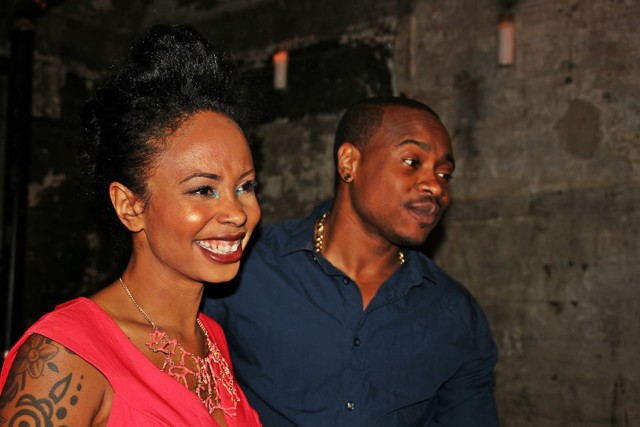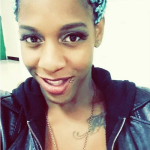
On March 10, the TRANSforming Gender Conference will begin its 10th year highlighting the diversity of gender and addressing equality, support, visibility and scholarship for transgender, gender non-conforming and intersex people.
The conference, which is free and open to the public, will run through March 12 at the University of Colorado Boulder’s Center for Community (commonly referred to as C4C).
Morgan Seamont, assistant director of CU’s Gay, Lesbian, Bisexual, Transgender and Queer (GLBTQ) Resource Center, says that after a decade the conference is still “a response to a need.”
“But we’ve seen it grow from basically a 30-person attendance to over 400 attendees last year,” he says. “And what’s great about this conference is it’s sort of workshop driven. If people see a need, they can submit an idea for a workshop. So the conference is continually changing as are the needs of the transgender community.”
Seamont, who identifies as a transgender man, says transgender is an “umbrella term” that can mean “a lot of different things to different people.”
For some, Seamont explains, it can mean fluidity, “a sort of day-to-day changing, of sliding along a [gender] spectrum scale.” Others prefer to move from one side of the traditional gender binary to the other, for example, a person who is assigned male at birth but identifies as female.
GLAAD is a media-monitoring organization that helps news outlets produce healthy, accurate stories about GLBTQ communities. Under the umbrella term transgender, GLAAD offers a number of other terms people may choose to use, such as trans (a shortened form of transgender); transgender woman or transgender man (a person whose gender identity and/or expression is different from the sex they were assigned at birth); genderqueer (any person whose gender identity and/or gender expression falls outside the categories of man and woman); and gender non-conforming (used to describe some people whose gender expression is different from conventional expectations of masculinity and femininity; this is not a term to describe all transgender individuals). The term cisgender is often used to describe folks who identify with the sex they were assigned at birth.
While the conference, as always, will cover a range of topics — from what it means to be transgender to incorporating queer literature in classrooms to the legal and health issues faced by transgender and gender non-conforming individuals — this year’s keynote speakers will highlight transgender people of color.
“I think we’ve seen a lot more activism around the minority within the minority, so people of color within the transgender community,” Seamont says. “We could see from the movements that started a year or two ago around Black Lives Matter, it was an area that needed to be addressed in our conference as well.”
Transgender people, especially women and people of color, face higher rates of violence than cisgender individuals (and gay, lesbian and bisexual people). A report conducted in part by the National Coalition of Anti-Violence Programs found that within the GLBTQ community, more than two-thirds of homicide victims were transgender women, with 67 percent of those victims being people of color. The epidemic of violence became so clear that in November 2015, the House LGBT Equality Caucus held the first-ever congressional forum on violence against transgender people.
There are four keynote speakers at this year’s TRANSforming Gender Conference who will address the issues transgender people of color regularly face.

CeCe McDonald is a transgender black woman who, in 2011, fought off a racist, transphobic attacker. She spent 19 months of a 41-month sentence in a men’s prison for second-degree manslaughter despite evidence that her actions were motivated only by self-defense. McDonald is the subject of an upcoming documentary entitled Free CeCe, produced by Laverne Cox and Jac Gares. The film tackles the issues of trans-misogyny and the epidemic of violence surrounding trans women of color.
Also speaking is Jennicet Gutiérrez, a transgender Latina activist and organizer from Mexico. In 2012, Gutiérrez interrupted President Obama during a speech while he was talking about violence targeting transgender women of color to point out the president’s hypocricy.
“But while he spoke of ‘trans women of color being targeted,’ his administration holds LGBTQ and trans immigrants in detention,” Gutiérrez wrote in a June 2015 piece for Washington Blade.
“Immigrant trans women are 12 times more likely to face discrimination because of our gender identity,” she continued. “If we add our immigration status to the equation, the discrimination increases. Transgender immigrants make up one out of every 500 people in detention, but we account for one out of five confirmed sexual abuse cases in [Immigration and Customs Enforcement] custody.”

During the final day of the conference, Tiq and Kim Milan will speak about creating love in queer communities of color. The Milans have worked together, and separately, to bring awareness to GLBTQ issues. Tiq is currently a national spokesperson for GLAAD, and has trained national transgender advocates, including CeCe McDonald. Kim has created dozens of workshop series on social change, anti-oppression, intersectionality, race, gender, leadership, youth and young women’s empowerment.
Seamont says the conference, despite some of the heartrending subject matter, is a positive experience, celebrating recent victories, such as CU’s addition of gender confirmation surgery to the university’s health benefits for faculty and staff.
And it gives folks a safe place to explore their thoughts and further deconstruct long-held notions of gender.
“It’s important to ask some of these questions, like why can’t men wear make up or why women can’t have a masculine body appearance,” Seamont says. “It’s a way of interrogating the rules that our society has created around gender.”














